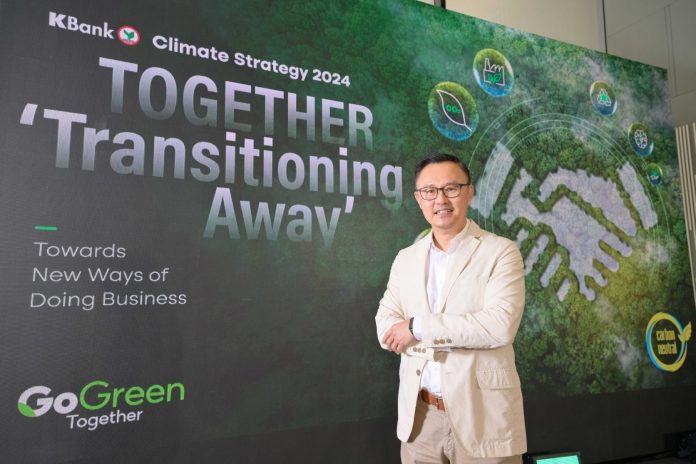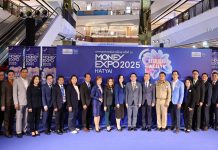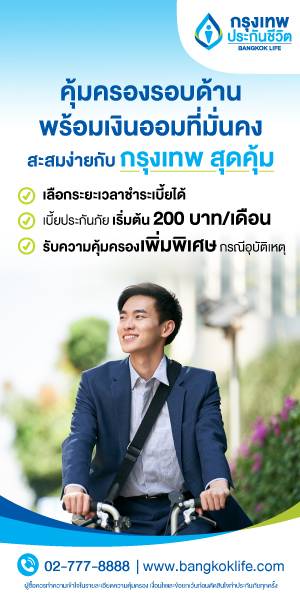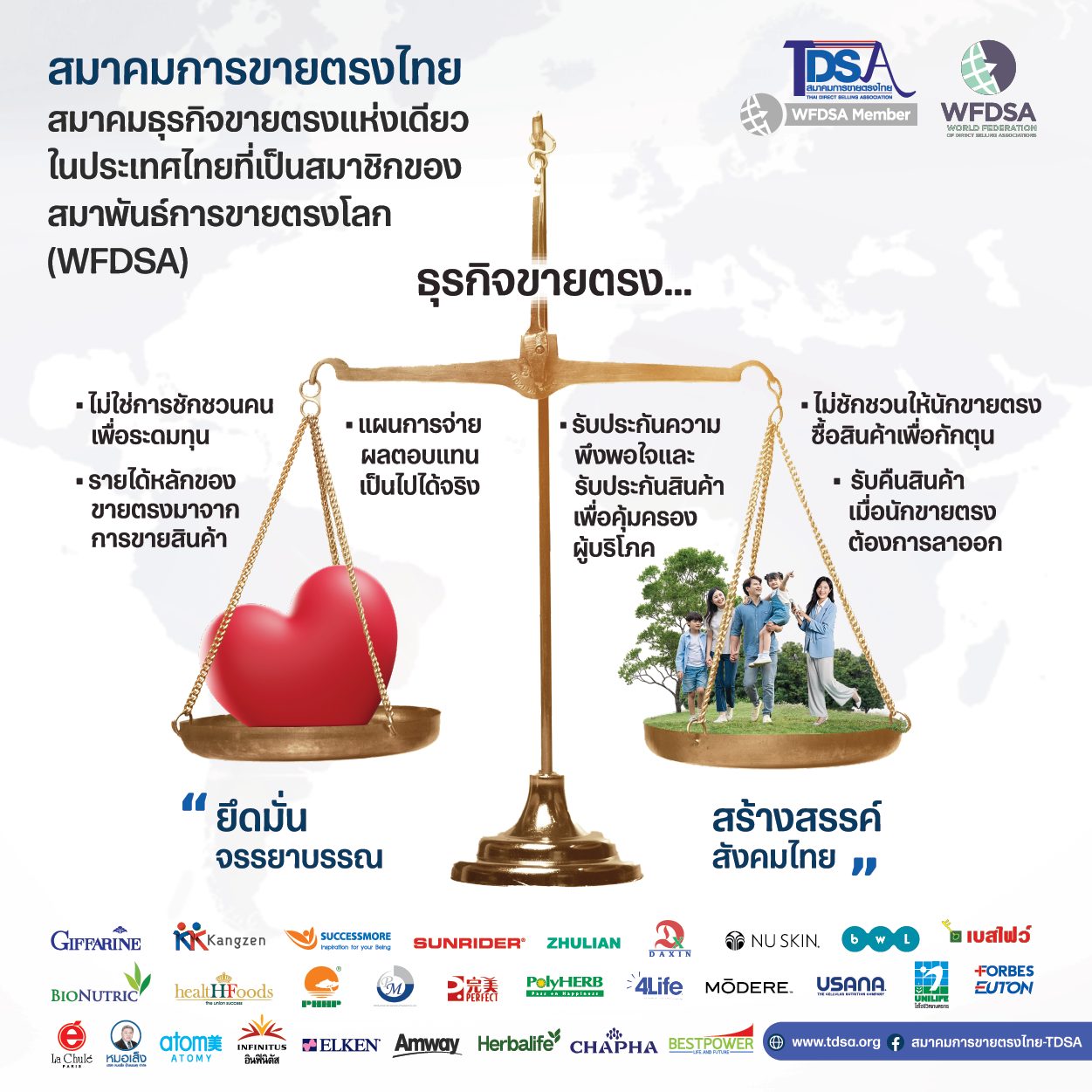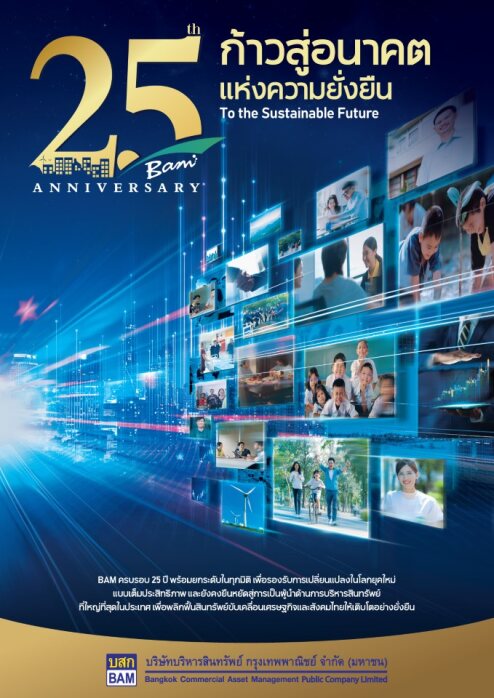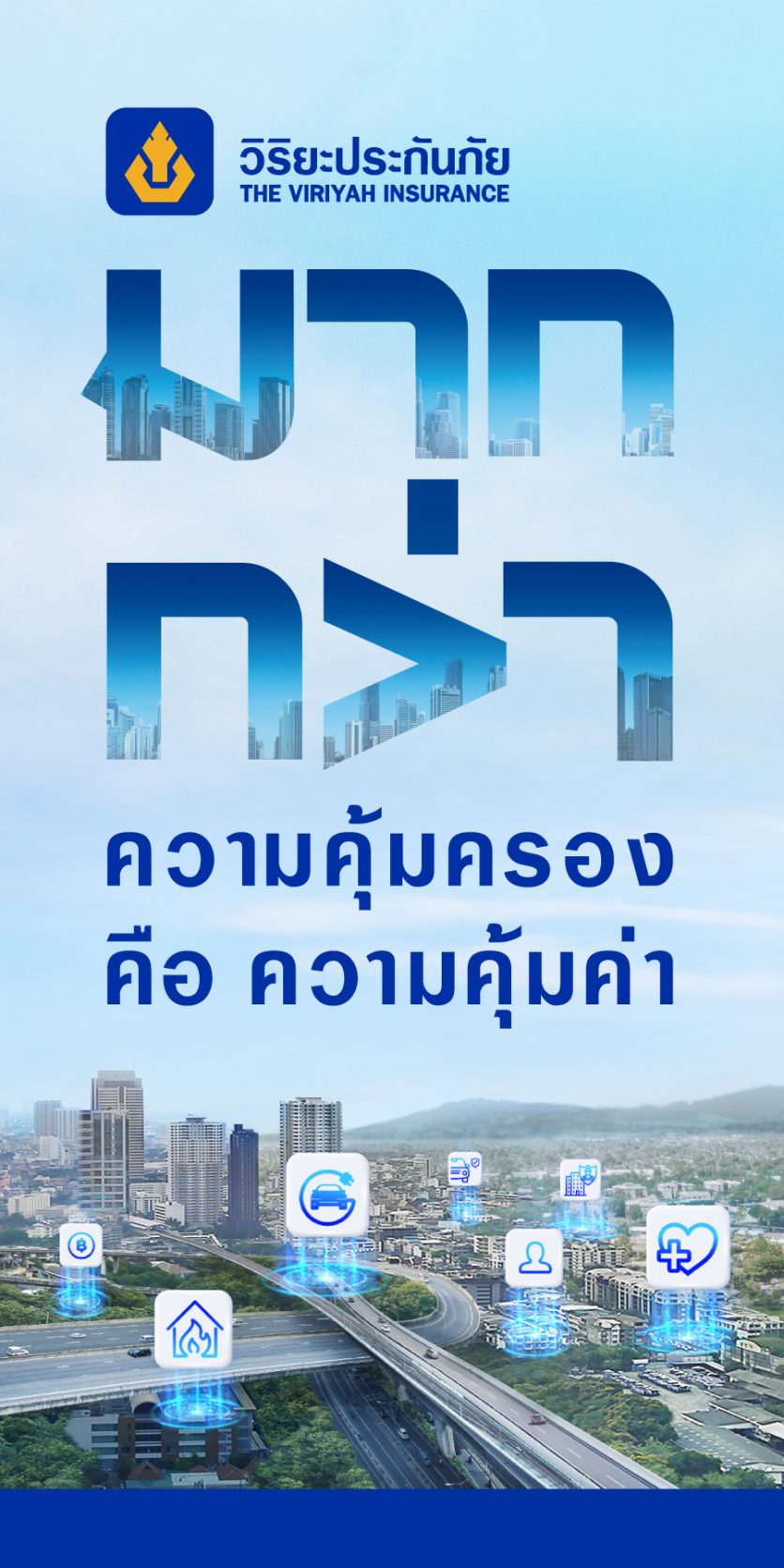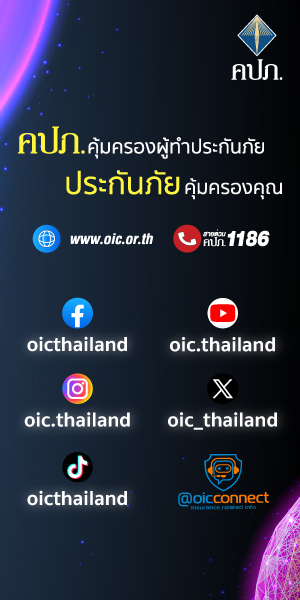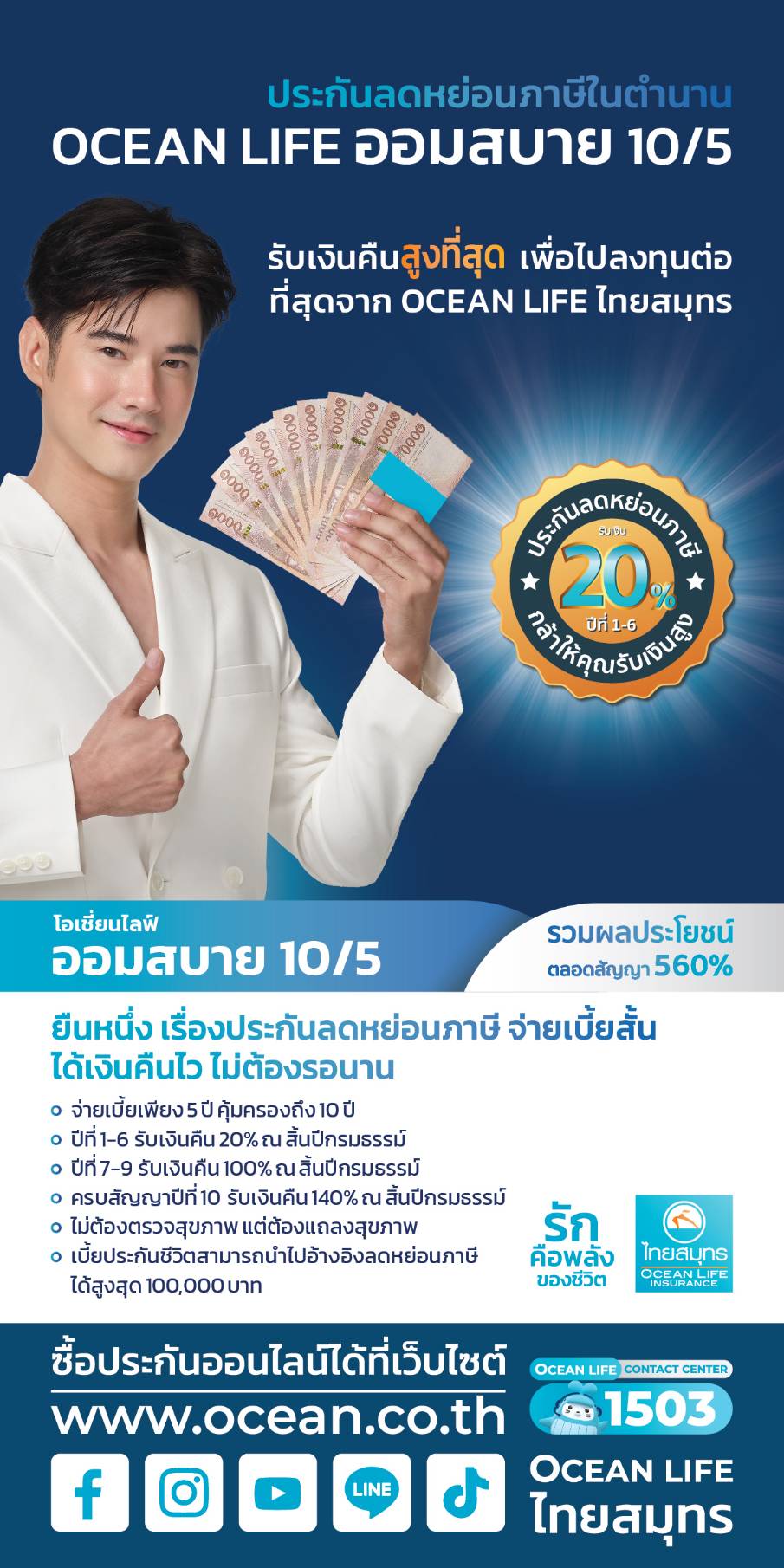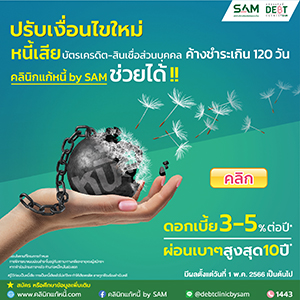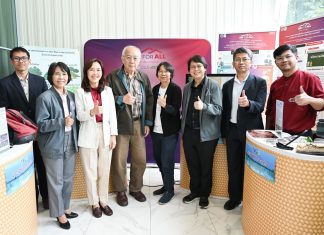ธนาคารกสิกรไทยเปิดยุทธศาสตร์ด้านสิ่งแวดล้อม ปี 2567 ที่จะพาธุรกิจไทยก้าวสู่โลกธุรกิจรูปแบบใหม่ พร้อมรับมือยุค Climate Game ที่มูลค่าของธุรกิจไม่ได้ขึ้นอยู่เพียงผลกำไรจากธุรกิจดังเดิมแต่มีปัจจัยด้านสิ่งแวดล้อมและสังคมเข้ามาเกี่ยวข้อง โดยธนาคารเดินหน้าการทำงานสู่เป้าหมายการปล่อยก๊าซเรือนกระจกสุทธิเป็นศูนย์ ทั้งปรับการดำเนินงานของธนาคาร (Green Operation) ด้วยมาตรฐานสากล การส่งมอบสินเชื่อและเงินลงทุนด้านความยั่งยืน (Sustainable Financing and Investment) ที่จะไปสู่ยอด 100,000 ล้านบาท ในปี 2567 นี้ รวมทั้งศึกษาและจัดเตรียมโซลูชันด้านสิ่งแวดล้อมในทุกมิติที่ภาคธุรกิจต้องการ (Climate Solutions) ทั้งด้านการให้คำปรึกษา การจัดทำ Carbon Accounting การทำธุรกิจเกี่ยวเนื่องกับคาร์บอนเครดิตและระบบนิเวศที่เกี่ยวข้อง (Carbon Ecosystem) เพื่อสนับสนุนภาคธุรกิจในการเปลี่ยนผ่านพร้อมรับมือกับแรงกดดันด้านกฎระเบียบสิ่งแวดล้อมของโลกและไทยที่เพิ่มขึ้น และตอบรับกับโอกาสทางธุรกิจที่จะเกิดขึ้น มุ่งสู่เศรษฐกิจการปล่อยก๊าซเรือนกระจกสุทธิเป็นศูนย์ไปด้วยกัน
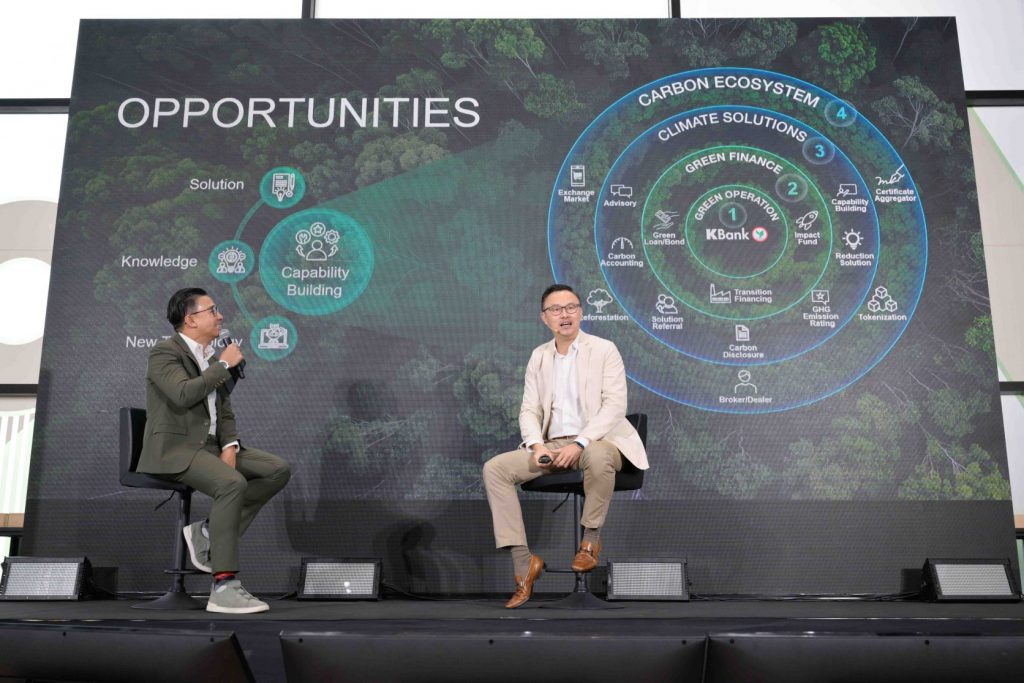
นายพิพิธ เอนกนิธิ กรรมการผู้จัดการ ธนาคารกสิกรไทย เปิดเผยว่า การประชุม COP 28 ที่ผ่านมา ประชาคมโลกบรรลุข้อตกลงที่จะเปลี่ยนผ่านระบบพลังงานออกจากเชื้อเพลิงฟอสซิล ซึ่งจะส่งแรงกดดันลงไปสู่ภาคธุรกิจในวงกว้าง และประเทศไทยจะเป็นหนึ่งในประเทศที่อาจได้รับผลกระทบอย่างหนักจากการเปลี่ยนผ่านด้านสิ่งแวดล้อม (Transition Risk) ด้วยกฎระเบียบทางการค้าที่ทั้งสหรัฐอเมริกา ยุโรป และจีน จะทยอยบังคับใช้เพิ่มขึ้น อาจส่งผลกระทบต่อมูลค่าสินค้าส่งออกไทยราว 40-45% นอกจากนี้ ร่างพระราชบัญญัติการเปลี่ยนแปลงสภาพภูมิอากาศ พ.ศ….. ของไทยที่กำลังอยู่ระหว่างการพิจารณา กำหนดให้ภาคธุรกิจต้องวัดผลและรายงานการปล่อยก๊าซเรือนกระจก (MRV) มาตรการจำกัดสิทธิผู้ประกอบการเรื่องการปล่อยก๊าซเรือนกระจก (Cap and Trade) มาตรการจัดเก็บภาษีการปล่อยก๊าซเรือนกระจกจากสินค้าภาคอุตสาหกรรม (Carbon Tax) รวมถึงการทำธุรกรรมเกี่ยวกับคาร์บอนเครดิต ซึ่งจะกระทบกับผู้ประกอบธุรกิจในวงกว้าง
จากการที่โลกธุรกิจกำลังเข้าสู่ยุค Climate Game ที่ปัจจัยด้านสิ่งแวดล้อมทำให้สมการธุรกิจเปลี่ยนไป มูลค่าของธุรกิจจากรายได้ธุรกิจแบบดั้งเดิม จะถูกลดทอนด้วยปัจจัยเชิงลบที่ธุรกิจส่งผลกระทบต่อสิ่งแวดล้อมและสังคม และจะมีโอกาสเพิ่มขึ้นจากการทำธุรกิจที่ได้ปัจจัยบวกด้านสิ่งแวดล้อม ผู้ประกอบการจึงต้องตระหนักและปรับตัวให้ทันเพื่อรับมือกับเกมนี้ ธนาคารกสิกรไทยมีความมุ่งมั่นที่จะสนับสนุนภาคธุรกิจในการปรับตัวรับมือ ด้วยประสบการณ์ ผลิตภัณฑ์ และองค์ความรู้ที่มี จึงได้กำหนดยุทธศาสตร์ด้านสิ่งแวดล้อมของธนาคารกสิกรไทย ปี 2567 ด้วยเป้าหมายสำคัญที่จะพาธุรกิจไทยและเศรษฐกิจไทยเปลี่ยนผ่านเข้าสู่โลกธุรกิจรูปแบบใหม่ สามารถปรับตัวรับมือกับการเปลี่ยนแปลงที่เกิดขึ้นและคว้าโอกาสไว้ได้ พร้อมสร้างการเติบโตอย่างยั่งยืนในระยะยาว โดยธนาคารดำเนินการผ่านกลยุทธ์หลัก ดังนี้
เริ่มด้วยการลดก๊าซเรือนกระจกจากการทำงานของธนาคาร
กลยุทธ์ที่ 1 Green Operation – ธนาคารปรับเปลี่ยนกระบวนการดำเนินงานของตัวเอง ด้วยความมุ่งมั่นที่จะลดการปล่อยก๊าซเรือนกระจกจากการดำเนินงานของธนาคาร (Scope 1-2) เป็น Net Zero ด้วยมาตรฐานสากล โดยธนาคารเริ่มมีการพัฒนาระบบข้อมูลก๊าซเรือนกระจก รวมทั้งการดำเนินการเกี่ยวกับคาร์บอนเครดิต ตั้งแต่ปี 2555 เป็นต้นมา จึงได้สั่งสมประสบการณ์ตรงจากการลงมือทำจริง โดยมีผลการทำงานถึงปัจจุบัน ได้แก่ ธนาคารมีการติดตั้ง Solar Rooftop ที่อาคารหลักของธนาคาร 7 แห่ง ครบ 100% และติดตั้งที่สาขาด้วยแล้วซึ่งจะมีจำนวน 78 สาขา ภายในเดือน มิ.ย. 2567 นี้ มีการเปลี่ยนรถยนต์ที่ใช้ในธุรกิจธนาคารจากรถยนต์สันดาปเป็นรถยนต์ไฟฟ้าแล้ว 183 คัน
การเปลี่ยนแปลงเชิงบวกที่เกิดขึ้น ธนาคารสามารถลดการปล่อยก๊าซเรือนกระจกจากการดำเนินงานได้อย่างต่อเนื่อง โดยในปี 2566 ลดได้ 12.74% เมื่อเทียบปีฐาน (2563) มีการจัดการด้านคาร์บอนเครดิต โดยเป็นกลางทางคาร์บอนมาแล้ว 6 ปีต่อเนื่อง (2561-2566) และตั้งเป้าหมายเป็น Net Zero ใน Scope 1 & 2 ภายในปี 2573
ช่วยลูกค้าด้วยการเงินสีเขียว
กลยุทธ์ที่ 2 Green Finance – ธนาคารนำความแข็งแกร่งด้านสินเชื่อและเงินลงทุน สนับสนุนภาคธุรกิจในการเปลี่ยนผ่านอย่างครบวงจร ได้แก่ 1.การให้สินเชื่อด้านสิ่งแวดล้อม (Green Loan) และการให้สินเชื่อเพื่อปรับปรุงกระบวนการทางธุรกิจในการเปลี่ยนผ่าน (Transition Finance) 2.การจัดสรรเงินลงทุนของธนาคารในธุรกิจและสตาร์ตอัพที่สร้างผลกระทบเชิงบวก 3. การนำเสนอผลิตภัณฑ์การลงทุนทั้งของธนาคารและพันธมิตรระดับโลกเพื่อดึงดูดเม็ดเงินการลงทุนไปสนับสนุนธุรกิจที่คำถึงสิ่งแวดล้อมและสังคม (ESG) โดยธนาคารส่งมอบเม็ดเงินสินเชื่อและเงินลงทุนเพื่อความยั่งยืนไปแล้ว 73,397 ล้านบาท (ปี 2565-2566) และคาดว่าจะมียอดรวมเป็น 100,000 ล้านบาท ภายในปี 2567 นี้ และจะเป็น 200,000 ล้านบาท ภายในปี 2573 ตามเป้าหมาย
การเปลี่ยนแปลงเชิงบวกที่เกิดขึ้น ภายใต้กลยุทธ์นี้มีจุดชี้วัดหลัก (KPI) ประการหนึ่ง คือ ปริมาณการปล่อยก๊าซเรือนกระจกในพอร์ตโฟลิโอ (Portfolio Emission) ของอุตสาหกรรมหลักที่ธนาคารให้ความสำคัญในการควบคุมและสนับสนุนการเปลี่ยนผ่านอย่างใกล้ชิด ซึ่งได้วางแผนกลยุทธ์รายอุตสาหกรรม (Sector Decarbonization Strategy) ไปแล้ว 5 กลุ่มอุตสาหกรรม ได้แก่ กลุ่มโรงไฟฟ้า กลุ่มน้ำมันและก๊าซธรรมชาติต้นน้ำ กลุ่มเหมืองถ่านหินประเภทเชื้อเพลิงให้ความร้อน กลุ่มซีเมนต์ และกลุ่มอลูมิเนียม โดยพบว่ามีความคืบหน้าที่วัดผลได้ อาทิ พอร์ตโฟลิโออุตสาหกรรมโรงไฟฟ้า ซึ่งธนาคารสนับสนุนสินเชื่อสีเขียว จำนวน 3,800 ล้านบาท ปัจจุบันธนาคารมีระดับความเข้มข้นของการปล่อยก๊าซเรือนกระจก (Emission Intensity per GWh) ในพอร์ตนี้ลดลง 5% ในปี 2566 เมื่อเทียบกับปีฐาน (2563) ซึ่งสอดคล้องกับแผนที่วางไว้
บูรณาการศักยภาพ ส่งมอบโซลูชันที่มากกว่าแบงก์กิ้ง
นายพิพิธ กล่าวเพิ่มเติมว่า ในภาพรวมปริมาณการปล่อยก๊าซเรือนกระจกของธนาคาร ส่วนใหญ่เกิดจากการปล่อยก๊าซเรือนกระจกในพอร์ตโฟลิโอของธนาคาร ซึ่งคิดเป็น 480 เท่า ของปริมาณการปล่อยก๊าซเรือนกระจกจากการดำเนินการโดยตรงของธนาคาร (Own Operation – Scope 1 & 2) ดังนั้น ธนาคารจึงปรับกลยุทธ์และเร่งสร้างเครื่องมือสนับสนุนการลดการปล่อยก๊าซเรือนกระจกของผู้ประกอบการ สอดคล้องกับภาครัฐที่เห็นความจำเป็นและมีส่วนช่วยผลักดันการขับเคลื่อนภาคธุรกิจในเรื่องนี้ นอกจากนี้ ธุรกิจที่ต้องปรับตัวด้านสิ่งแวดล้อมได้สะท้อนความต้องการรับการสนับสนุนจากธนาคารในมิติที่มากกว่าการเงิน ทั้งเรื่องความรู้ด้าน ESG เพื่อธุรกิจ บริการให้คำปรึกษาเชิงเทคนิค และการจับคู่ธุรกิจกลุ่ม ESG ธนาคารกสิกรไทยจึงมีการบูรณาการศักยภาพทั้งโซลูชัน องค์ความรู้ และเทคโนโลยี เพื่อยกระดับการทำงานทั้งของธนาคารเองและการทำงานของลูกค้า ผ่านกลยุทธ์การทำงานเพื่อการส่งมอบบริการที่มากกว่าการเงิน ดังนี้
กลยุทธ์ที่ 3 Climate Solutions – โซลูชันด้านสิ่งแวดล้อมอย่างครบวงจรโดยอาศัยความร่วมมือจากพันธมิตร ประกอบด้วย โซลูชันการส่งมอบความรู้และคำแนะนำ (Knowledge Provider) ที่บูรณาการองค์ความรู้จากสถาบันชั้นนำ การพัฒนาโซลูชันเพื่อลดการปล่อยก๊าซเรือนกระจกให้กับลูกค้าทั้งบุคคลและผู้ประกอบการ (Reduction Solution) โดยทดลองออกบริการนำร่องแล้ว ได้แก่ WATT’S UP เป็นแพลต์ฟอร์มรองรับการเช่ารถจักรยานยนต์ไฟฟ้าแบบครบวงจร รวมถึงบริการสลับแบตเตอรี่ผ่านจุดบริการ ปัจจุบัน มีผู้ใช้งาน 367 ราย โดยในปี 2567 คาดว่าจะมีรุ่นรถจักรยานยนต์ไฟฟ้าให้บริการมากกว่า 10 รุ่น ขยายตู้สลับแบตเตอรี่เป็นกว่า 70 สาขา ทั่วกรุงเทพฯ และปริมณฑล และ“ปันไฟ” (Punfai) เป็นแอปพลิเคชันที่เป็นความร่วมมือระหว่างธนาคารกสิกรไทยและการไฟฟ้าฝ่ายผลิตแห่งประเทศไทย (กฟผ.) พัฒนาแอปพลิเคชันแลกเปลี่ยนไฟฟ้าแห่งแรกของไทยที่ตอบโจทย์การใช้งานครบทุกมิติ รองรับการใช้งานทั้งภาคประชาชนและภาคธุรกิจ
นอกจากนี้ ธนาคารนำประสบการณ์กว่า 10 ปี ในการวัด Carbon Footprint ของธนาคาร มาใช้เพื่อเตรียมพัฒนาโซลูชันใหม่ที่จะช่วยผู้ประกอบการเรื่องการวัดผล รายงาน และตรวจสอบการปล่อยก๊าซเรือนกระจก (Carbon MRV) ให้สอดคล้องกับมาตรฐานระดับประเทศและระดับสากล
กลยุทธ์ที่ 4 Carbon Ecosystem – ธนาคารเตรียมความพร้อมในการเชื่อมต่อใน Carbon Ecosystem เพื่อการพัฒนาบริการไปอีกขั้น ในธุรกรรมที่เกี่ยวเนื่องกับคาร์บอนเครดิต โดยศึกษาและดำเนินการซื้อคาร์บอนเครดิตสำหรับการชดเชยทางคาร์บอนของธนาคารและบริษัทในกลุ่มฯ เพื่อสนับสนุนคาร์บอนเครดิตที่มีคุณภาพ และมีความมุ่งหวังที่จะเป็นตัวอย่างและร่วมผลักดันให้ตลาดคาร์บอนเครดิตของประเทศไทยเติบโตและเป็นที่ยอมรับในระดับสากล นอกจากนี้ ธนาคารได้มีการเปิดตัวแพลตฟอร์มขึ้นทะเบียนและขายใบรับรองการผลิตพลังงานหมุนเวียน (Renewable Energy Certificate: REC) ที่เป็นความร่วมมือระหว่างธนาคารกสิกรไทย และ Innopower เพื่ออำนวยความสะดวกให้กับประชาชนรายย่อยและธุรกิจขนาดกลางและขนาดย่อมที่ติดตั้งโซลาร์รูฟท็อป ขึ้นทะเบียนและขายใบรับรอง REC ได้ รวมถึงธนาคารได้ศึกษาและเตรียมแนวทางในมิติอื่น ๆ ของระบบนิเวศด้านคาร์บอนเครดิต เช่น การเป็นตัวแทนซื้อขายคาร์บอนเครดิต (Carbon Credit Broker / Dealer) การออกโทเคนคาร์บอนเครดิต (Carbon Credit Tokenization)
เชื่อมต่อภาคส่วน จับมือทุกคนทำไปด้วยกัน
นายพิพิธ กล่าวตอนท้ายว่า การทำงานด้าน Climate Change ในระดับประเทศให้บรรลุผลได้นั้น ต้องอาศัยพลังจากทุกคนร่วมมือทำสิ่งนี้ไปด้วยกัน
จึงจะสร้างการเปลี่ยนแปลงให้เกิดขึ้นจริง และธนาคารกสิกรไทยพร้อมที่จะเป็นจุดเชื่อมต่อของภาคธุรกิจ
ลูกค้า ผู้กำกับดูแล ผู้กำหนดนโยบาย
องค์กรแหล่งความรู้ด้านสิ่งแวดล้อมและนวัตกรรม ตลอดจนภาคการเงินและตลาดทุน บูรณาการศักยภาพ
ต่าง ๆ เพื่อส่งมอบเครื่องมือ ช่วยขับเคลื่อนธุรกิจไทยให้สามารถเปลี่ยนผ่านไปสู่โลกธุรกิจรูปแบบใหม่ที่เป็นมิตรต่อสิ่งแวดล้อม
รวมถึงคว้าโอกาสที่จะเกิดขึ้นในเศรษฐกิจการปล่อยก๊าซเรือนกระจกสุทธิเป็นศูนย์ไปด้วยกัน
KBank unveils its Climate Strategy to support business transition and seize opportunities, injecting sustainable financing and investment to reach 100 billion Baht in 2024 with comprehensive environmental solutions
KASIKORNBANK has launched KBank Climate Strategy 2024, which aims to support Thai businesses as they transition and embrace new business models in the “Climate Game” era, where business value is based not on profits alone, but also environmental and social factors. KBank is working towards the net-zero goal, through both green operations under international standards and green finance. The Bank continues providing sustainable financing and investment to reach 100 billion Baht in 2024 while also studying and preparing environmental solutions across all dimensions to comprehensively meet business needs, including consulting, carbon accounting and carbon ecosystem services. These initiatives are aimed at helping businesses in their decarbonization journey amid the proliferation of environmental regulations both globally and in Thailand, in order to seize the opportunities that will arise in the drive towards the net-zero economy.
Mr. Pipit Aneaknithi, KBank President, said, the 28th Conference of the Parties to the United Nations Framework Convention on Climate Change or COP28, concluded with a historic agreement to transition away from fossil fuels. This effort will put pressure on businesses worldwide, and Thailand is also expected to feel significant impacts from the transition risk. As evidenced, new trade-related regulations implemented by the US, Europe and China will likely affect 40-45 percent of Thailand’s export value. Additionally, the draft Climate Change Act B.E. …. currently under consideration in Thailand, will require businesses to conduct greenhouse gas emissions measurement, reporting and verification (MRV), implement a cap-and-trade system for greenhouse gas emissions, pay carbon taxes on emissions from industrial products and engage in carbon credit transactions. These regulatory requirements would have wide-ranging impacts on businesses in Thailand”.
The business world is entering the era of the “Climate Game”, where environmental factors are fundamentally changing the business equation. The value of businesses as based on traditional revenue models will be diminished due to negative factors related to their environmental and social impacts. Conversely, opportunities exist for businesses that have positive impacts on the environment. As a result, business operators must be aware of and adapt to this new reality to succeed in the climate game. With the determination to utilize its experiences, products and body of knowledge in supporting the business sector’s self-adaptation, KBank has mapped out the Climate Strategy 2024, under which the chief goal is to support Thai businesses and the Thai economy in their transition into the new business world, to be able to deal with all changes and grasp new opportunities, while creating long-term sustainable growth. Key strategies of KBank include the following:
First step by reducing GHG emissions from KBank’s operations
Strategy 1: Green Operation – Propelled by its commitment to reducing GHG emissions from operations (Scope 1 & 2) to Net Zero per global standards, KBank has redesigned its operational processes, starting with the development of a GHG database system and carbon credit-related operations beginning in 2012. KBank’s has gained experience through implementation that has been evidenced by concrete results, including solar rooftop installation at all seven main buildings. In addition, solar rooftops are to be installed at 78 branch offices within June 2024. Meanwhile, 183 internal-combustion engine (ICE) vehicles in KBank’s fleet have already been replaced with electric vehicles.
Positive impacts: KBank has been able to continually reduce its GHG emissions, as seen from the decrease of 12.74 percent realized in 2023 compared to the base year of 2020, while carbon credit management has been undertaken for six consecutive years (2018 – 2023), with the aim of becoming Net Zero in its Scope 1 & 2 by 2030.
Green Finance to assist customers
Strategy 2: Green Finance – KBank has leveraged its comprehensive strengths in loans and investment in supporting the business sector’s transition, including: 1) Green Loans and Transition Finance; 2) Investment allocation to businesses and startups that create positive impacts; and 3) Offering of investment products of KBank and its global partners to attract investment funds to support ESG businesses. In 2022-2023, KBank’s financing and investment for sustainability totaled 73,397 million Baht. That figure is estimated to reach 100 billion Baht and 200 billion Baht within 2024 and 2030, respectively, in accordance with the established plan.
Positive impacts: The key performance indicator (KPI) under this strategy is portfolio emissions of key industries, for which the Bank attaches importance to control and support for their transition to Net Zero. Given this, the Bank has implemented the Sector Decarbonization Strategy for five industries, namely power generation, upstream oil and natural gas, thermal coal mining, cement, and aluminum. Several measurable signs of progress have been found, including the portfolio of the power generation industry, for which KBank offers green loans totaling 3.8 billion Baht. The Bank’s Emission Intensity per GWh in this portfolio declined by 5 percent in 2023 compared to the baseline year (2020), which is in line with the established plan.
Integration of capabilities and delivery of solutions beyond banking
Mr. Pipit added, “The Bank’s overall greenhouse gas emissions largely come from its financed portfolio, accounting for approximately 480 times the emissions from the Bank’s own operations – Scope 1 & 2. Therefore, the Bank has adjusted its strategy and accelerated the development of tools to support greenhouse gas emissions reduction for entrepreneurs in line with the government’s efforts and views towards supporting the business sector in this matter. Additionally, businesses that must make environmental adjustments require support from KBank beyond financial assistance, such as ESG knowledge, technical consulting services, and business matching among ESG groups. KBank has thus integrated capabilities – including solutions, knowledge, and technology – to elevate both its own operations and those of its clients through a strategy aimed at delivering services beyond financial solutions”.
Strategy 3: Climate Solutions – Comprehensive environmental solutions with cooperation from partners to offer knowledge provider solutions delivering advisory and useful information for business transition as well as reduction solutions for consumers and business initiated through various pilot projects, such as the WATT’S UP platform that offers comprehensive electric motorbike rental services, and battery swapping services through designated service points. Presently, there are 367 active users. By 2024, the Bank plans to offer more than 10 EV bike models available for service, together with more than 70 battery swapping stations in the Bangkok metropolitan area. Another notable initiative is the ‘Punfai’ application developed under collaboration between KBank and the Electricity Generation Authority of Thailand (EGAT). Punfai is Thailand’s first all-in-one energy exchange platform designed for both the household and business sectors. Moreover, the Bank has leveraged its over 10 years of experience in measuring carbon footprint to develop new solutions aimed at assisting businesses with measurement, reporting and verification (MRV) of their greenhouse gas emissions in conformity with national and international standards.
Strategy 4: Carbon Ecosystem – The Bank is ready to connect with the carbon ecosystem to further develop services in carbon credit-related transactions. This involves studying and purchasing carbon credits to offset the carbon emissions of KBank and other companies within KASIKORNBANK FINANCIAL CONGLOMERATE, selecting reputable projects and supporting high-quality carbon credits. The focus is to serve as a role model and contribute to the growth and acceptance of Thailand’s carbon credit market on a global scale. To this end, KBank has partnered with INNOPOWER Co., Ltd. (INNOPOWER) in launching a platform for Renewable Energy Certificate (REC) registration and sale to facilitate individuals and small and medium-sized businesses that have installed solar rooftops to register and sell RECs. Additionally, the Bank has explored other elements of the carbon ecosystem, such as carbon credit broker/dealer and carbon credit tokenization.
Connecting sectors and making the transition together
Mr. Pipit noted in closing, “To achieve tangible results and create material changes at the national level, operations related to climate change require the collective effort of all related parties. KBank is ready to act as an intermediary between businesses and consumers; policy makers and regulators; climate knowledge and innovation institutions, as well as financial and capital market community, integrated with our knowledge and data capabilities. This aims to provide tools driving Thai businesses towards transitioning to a new environmentally friendly business model, seizing opportunities in the emerging zero-carbon economy together”.



